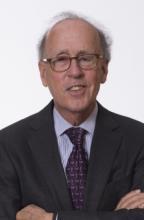Europe’s Green Unilateralism
MUNICH – The European Union is one of the few signatories to the 2015 Paris climate agreement that initially committed to binding limits on its carbon dioxide emissions, having promised to reduce them by 40% (and now 55%) from 1990 levels by 2030. On July 14, the European Commission presented a comprehensive package of measures aimed at achieving massive reductions in EU firms’ and households’ CO2 emissions in the short term in order to meet the 55% target by 2030 and make the bloc carbon neutral by 2050.
Never before has the world seen a comparable effort to protect the environment. And rarely, except in wartime, have market economies been subjected to the sort of rigid central planning that the Commission now proposes.
The program envisages three different CO2 emissions-trading systems. The Commission plans to expand the existing scheme, which already applies to the energy and chemical sectors and parts of basic industry, to shipping. The EU will also create a new, separate trading system for buildings and road transport. Moreover, emissions certificates will no longer be allocated free of charge. Instead, the EU wants to sell them and use the proceeds to finance transfers to poorer sections of the population, while also sharply reducing the number of certificates each year.
In 2020, the EU introduced a so-called taxonomy for classifying investments according to their degree of “greenness,” with the aim of prompting the European Central Bank to implement differentiated credit operations that provide verifiably green firms with lower interest rates. The Commission is now proposing a total ban on the direct use of fossil fuels in car engines after 2035; cars must thereafter be powered by electricity stored in batteries or in hydrogen tanks. And EU air-traffic emissions will be frozen at 2020 levels.
Lastly, the Commission plans to introduce a carbon border adjustment mechanism to put a carbon price on imports of basic industrial materials into the EU. This is intended to prevent so-called carbon leakage, or the relocation of CO2 emissions to other countries outside the bloc.
Whether these breathtakingly bold measures will work is an open question. What is certain, however, is that by bringing European industry to its knees and robbing it of its competitiveness, they will have a massive negative effect on the region’s living standards. The main force behind the Commission’s proposals is Frans Timmermans, its Executive Vice President for the European Green Deal, who is transforming Europe into a protectionist economic system controlled centrally from Brussels – and making many mistakes in the process.
For example, separate emissions-trading systems for different economic sectors, and control of the capital market via the investment-taxonomy regulation, will violate the law of one price, the normative bedrock of economics, which is indispensable for a cost-minimizing strategy of avoiding CO2 emissions.
Timmermans also overlooks the fact that oil, gas, and to some extent coal are internationally traded goods. The fuels that Europe no longer consumes will be sold on world markets to other countries happy to buy them at lower prices. The resulting carbon leakage will mean that, even if the EU formally fulfills its Paris agreement pledge, its transport-related emissions reductions will not benefit the global climate.
For a ban on petroleum use in cars to achieve any positive climate effects, the EU would have to store the unused fuel in well-protected tanks somewhere in its territory. But the bloc’s leaders are wisely remaining silent about this in order not to highlight the obvious absurdity of their unilateral approach.
Moreover, contrary to the Commission’s hopes, abolishing gasoline and diesel car engines and switching to electric vehicles (EVs) will make hardly any contribution to reducing global CO2 emissions. The EU currently still generates a significant proportion of its electricity from coal, and Germany, the EU’s largest and most industrialized economy, has committed to decommissioning its nuclear power plants in 2022. For the coming years, in many EU countries, the new EVs will therefore largely run on additional energy stemming from existing European coal plants, which have free capacity, while existing wind and solar energy plants produce at their maximum and cannot adjust.
Given that EVs will accelerate European coal mining in the short run, and combustion engines would have used fuels that are internationally tradable and therefore carbon-neutral, Europe’s ban on internal combustion engines may even result in more CO2 emissions in the coming years.
The main problem is that the EU is not coordinating its actions with other countries – not even through the Paris agreement. Roughly 70% of the nearly 200 signatories have not committed to quantitative CO2 emissions limits and quietly welcome the fact that a small minority of countries have pledged not to buy so much fuel from under their noses.
The Commission’s belief that its proposed border adjustment system can prevent or contain carbon leakage is unfounded, if not naive. Even if the EU could tax the CO2 content of all imports, it would have no way to prevent the tradable fuels that it no longer uses from being shipped to other parts of the world and burned there. The EU is focusing on the insignificant part of carbon leakage related to the carbon content of traded goods, and overlooking the direct leakage via the sale of the fuels themselves.
Like the sale of CO2 emissions certificates, the border-adjustment duty will finally provide the EU with its own source of income. But those who must pay the levies are unlikely to regard this as an advantage.
The EU’s ambitious unilateral climate strategy will transform Europe into a trade fortress, encourage green protectionism worldwide, and give other regions the opportunity to develop using cheaper energy. And without China, India, and the United States on board, other countries will be careful not to follow the EU in its self-appointed role as the world’s green guinea pig. If Europe is not careful, it will risk finding itself in a climate club of one.
Hans-Werner Sinn, Professor Emeritus of Economics at the University of Munich, is a former president of the Ifo Institute for Economic Research and serves on the German economy ministry’s Advisory Council. He is the author of The Euro Trap: On Bursting Bubbles, Budgets, and Beliefs.
Copyright: Project Syndicate, 2021.
www.project-syndicate.org
This article is brought to you by Project Syndicate that is a not for profit organization.
Project Syndicate brings original, engaging, and thought-provoking commentaries by esteemed leaders and thinkers from around the world to readers everywhere. By offering incisive perspectives on our changing world from those who are shaping its economics, politics, science, and culture, Project Syndicate has created an unrivalled venue for informed public debate. Please see: www.project-syndicate.org.
Should you want to support Project Syndicate you can do it by using the PayPal icon below. Your donation is paid to Project Syndicate in full after PayPal has deducted its transaction fee. Facts & Arts neither receives information about your donation nor a commission.




















